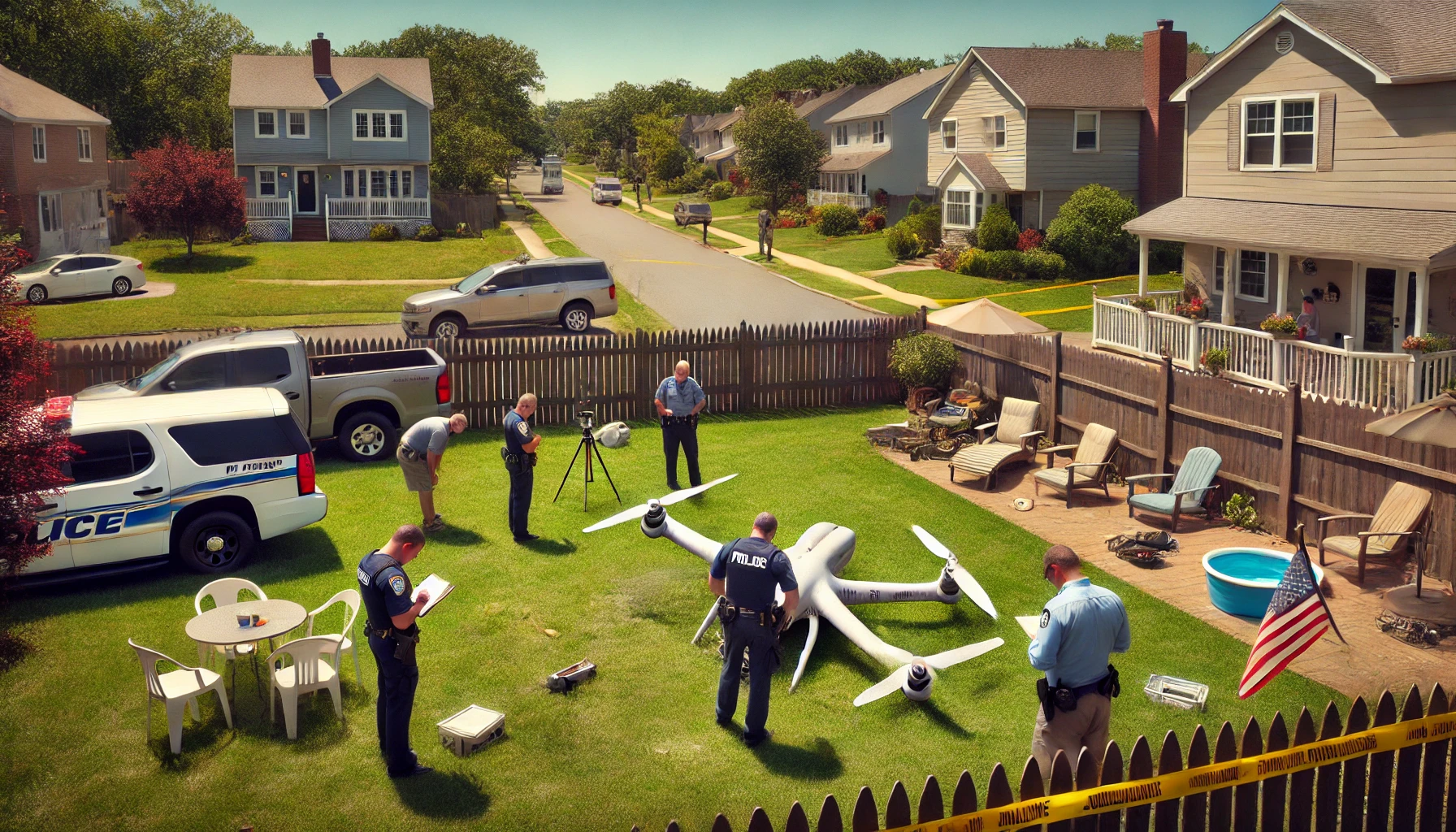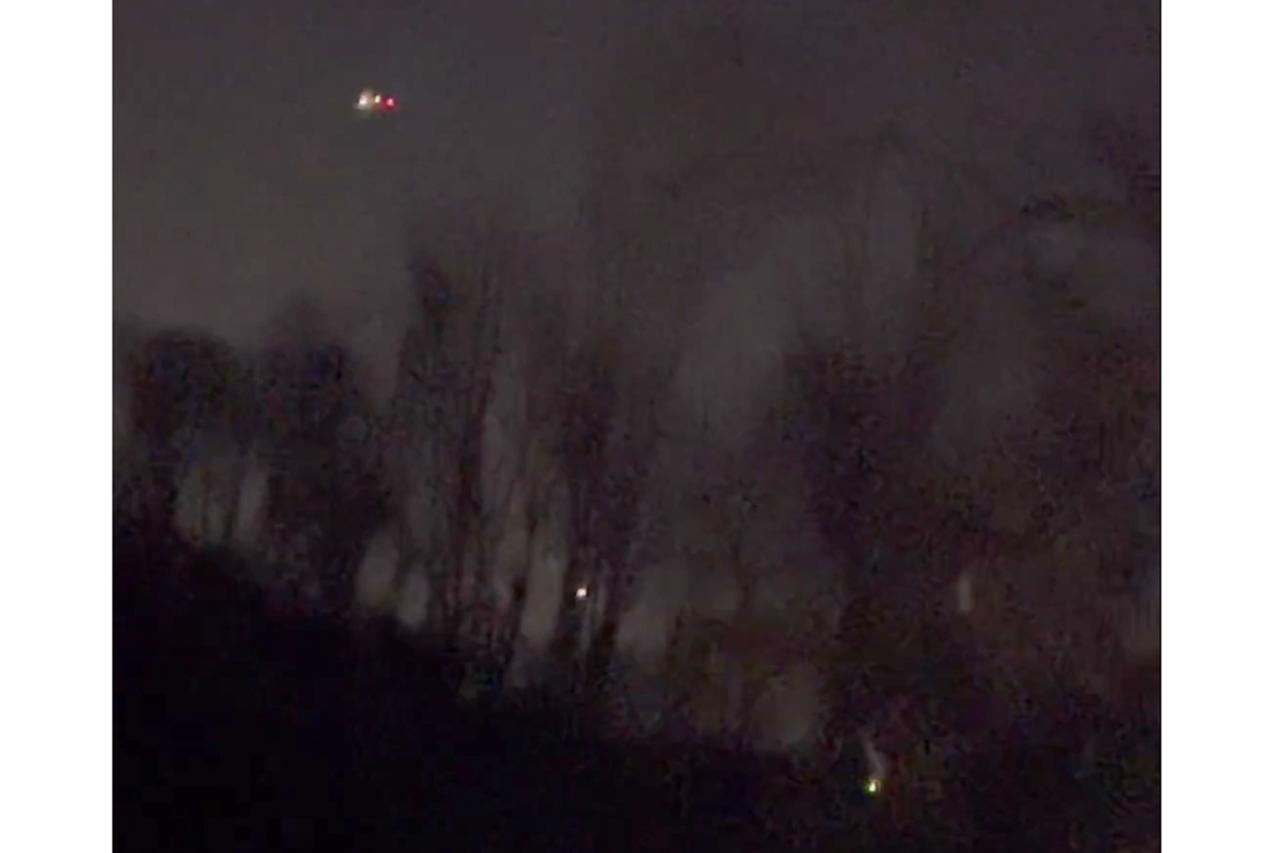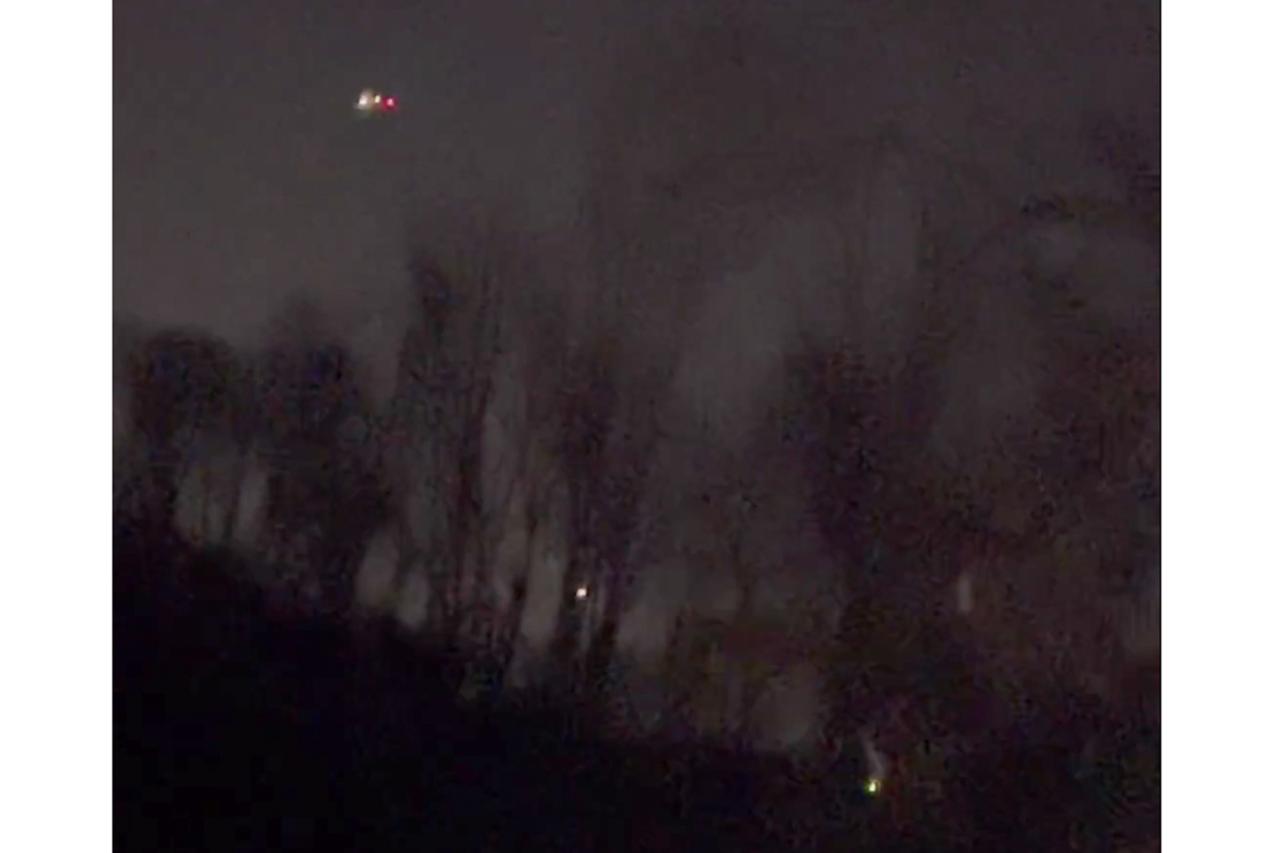NJ drone shot down—the headline alone sparks intrigue. This incident, unfolding in New Jersey, raises critical questions about drone regulations, security threats, and public perception. We’ll delve into the specifics of the event, examining the circumstances surrounding the drone’s destruction, the official response, and the broader implications for drone technology and airspace security. The investigation, public reaction, and legal ramifications will be explored in detail, offering a comprehensive understanding of this significant event.
From eyewitness accounts to the technological capabilities of the drone itself, we aim to provide a balanced and informative overview. This analysis will consider the perspectives of various stakeholders, including law enforcement, drone operators, and the general public, providing a nuanced perspective on this complex issue.
The New Jersey Drone Incident: A Comprehensive Analysis

The recent incident involving a downed drone in New Jersey has sparked significant discussion regarding drone regulations, security implications, and public perception. This analysis delves into the details of the event, examining the authorities’ response, public reaction, technological aspects, and legal ramifications.
Incident Details: The Downed Drone in NJ

Reports indicate a drone was shot down in a residential area of New Jersey. While precise geographical coordinates remain unavailable due to ongoing investigation, initial reports suggest the incident occurred near a densely populated suburban neighborhood. Eyewitness accounts describe a small, quadcopter-style drone flying erratically before being struck. Limited video footage, primarily from security cameras, has emerged, showing the drone’s trajectory and the moment of impact.
However, the quality is insufficient to definitively identify the drone’s operator or its intended purpose. The timeline remains under investigation, but the event reportedly took place within a short timeframe.
| Date | Time | Location | Drone Type | Reason for Downing |
|---|---|---|---|---|
| [Date of Incident] | [Time of Incident] | [General Location, NJ] | [Unspecified Quadcopter] | [Under Investigation] |
Authorities’ Response and Investigation, Nj drone shot down
Local law enforcement, the Federal Aviation Administration (FAA), and potentially the FBI responded to the incident. The investigation involves reviewing available video footage, interviewing witnesses, and analyzing any recovered drone fragments. At this time, no arrests have been made, and no charges have been filed. The legal framework governing drone operation in New Jersey and federal airspace is complex, focusing on registration, licensing, and operational restrictions.
This incident highlights potential gaps in current regulations and enforcement.
- Local Law Enforcement: Secured the scene, collected evidence.
- FAA: Investigating potential violations of airspace regulations.
- FBI: Investigating potential malicious intent or national security threats.
Public Reaction and Media Coverage
Public reaction has been mixed, ranging from concern over potential security risks to frustration with the lack of clear information. Media coverage has been extensive, with varying narratives emerging from different news outlets. Some emphasize the potential danger of rogue drones, while others highlight concerns about privacy and the use of force. The incident’s impact on public perception of drones will likely depend on the outcome of the investigation and subsequent regulatory changes.
A hypothetical social media campaign could focus on responsible drone operation, emphasizing safety guidelines and legal compliance. This campaign could utilize informative videos and infographics to educate the public.
Drone Technology and Security Implications

The drone involved was likely a commercially available quadcopter, possessing capabilities such as live video streaming and autonomous flight. The potential misuse of drones presents significant security threats, including unauthorized surveillance, delivery of contraband, and even attacks on critical infrastructure. Counter-drone technologies, such as radar systems, jamming devices, and net-launching systems, are being developed to mitigate these threats.
However, the effectiveness of these technologies varies depending on the drone’s sophistication and the environment.
The recent incident of a drone being shot down in New Jersey highlights the importance of responsible drone operation. To avoid such situations, and ensure compliance with regulations, pilots should familiarize themselves with the requirements for obtaining a transport canada drone license , if operating in Canada. Understanding these regulations is crucial for safe and legal drone use, minimizing the risk of similar incidents happening again.
A secure drone flight plan involves careful pre-flight checks, adherence to airspace regulations, and the implementation of failsafe mechanisms. Operators should always maintain visual line of sight, avoid sensitive areas, and obtain necessary permissions.
Legal and Regulatory Aspects
New Jersey, like other states, has regulations governing drone operation, primarily focusing on registration, licensing, and operational restrictions within designated airspace. Shooting down a drone carries significant legal ramifications, potentially leading to lawsuits for property damage or even injury. This incident may prompt a review of existing regulations, potentially leading to stricter enforcement and clearer guidelines. Current regulations may be inadequate in addressing rapidly evolving drone technology and the increasing complexity of airspace management.
A hypothetical legal brief could argue that the action of shooting down the drone was justified under the circumstances (if the drone posed an immediate threat), or conversely, that it was an excessive use of force, violating the drone operator’s rights.
Illustrative Example: A Hypothetical Scenario
Imagine a similar incident, but the drone is carrying a small explosive device and is targeting a public gathering. The drone operator, a disgruntled individual, intends to cause harm. The authorities intercept the drone before it reaches its target, using a combination of electronic jamming and a net-launching system. The operator is apprehended, and the device is safely neutralized.
News reports of a drone being shot down in New Jersey naturally raise concerns about the safety and regulation of unmanned aerial vehicles. Understanding the broader context of such incidents requires looking at the overall frequency of drone-related mishaps, which is why examining data on drone crashes in New Jersey provides valuable insight. This data helps us assess whether the recent shooting was an isolated incident or indicative of a larger trend affecting drone operations in the state.
The consequences in this scenario would be far more severe, highlighting the critical need for effective counter-drone measures and stricter regulations.
A visual representation of this scenario would depict the drone’s trajectory, the deployment of counter-drone technology, and the apprehension of the operator, emphasizing the urgency and precision required in such situations.
The shooting down of a drone in New Jersey serves as a stark reminder of the evolving challenges posed by unmanned aerial vehicles. This incident highlights the need for clear regulations, robust security measures, and a public discourse informed by factual information and balanced perspectives. Understanding the complexities of this event, from its immediate aftermath to its long-term implications, is crucial for navigating the future of drone technology and ensuring safe and responsible airspace management.
FAQ Corner: Nj Drone Shot Down
What type of drone was shot down?
The specific type of drone is often not immediately released by authorities, pending investigation.
Who shot down the drone?
This detail depends on the specific incident and is determined through the investigation. It could range from law enforcement to a private citizen.
What were the legal consequences for shooting down the drone?
Legal ramifications vary widely depending on the circumstances. Factors such as the drone’s actions, the shooter’s justification, and applicable state and federal laws determine potential consequences.
What is the FAA’s role in drone incidents?
The Federal Aviation Administration (FAA) plays a significant role in regulating drone operations and investigating incidents. They set safety standards and may be involved in determining whether regulations were violated.
